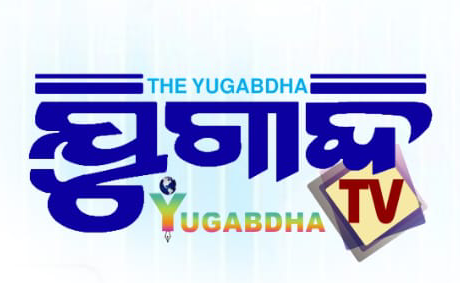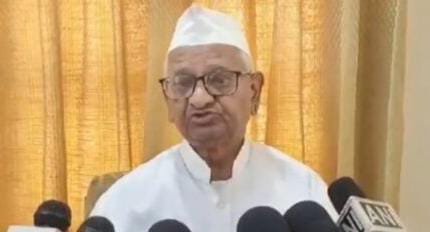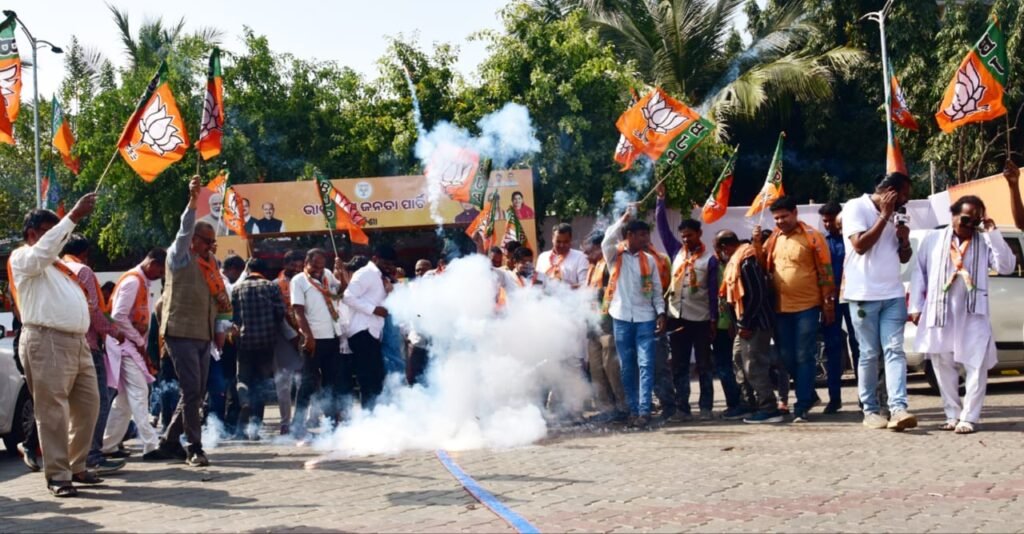The Bharatiya Janata Party (BJP) has scripted a historic win in the Delhi Assembly elections 2025, marking a major political shift in the national capital. After years of dominance by the Aam Aadmi Party (AAP), the BJP has emerged victorious, securing a clear majority in the 70-member Delhi Assembly. This victory is seen as a significant milestone for the party, which had struggled to gain control in Delhi over the past decade.
The BJP’s win is being attributed to a combination of strong leadership, strategic campaigning, and a focus on development-oriented policies. The party secured 42 seats, comfortably surpassing the halfway mark of 36, while the AAP managed to win 25 seats. The Congress party, once a formidable force in Delhi, could only win 3 seats, further cementing its declining presence in the capital’s political landscape.
A Wave of Change in Delhi
The victory for the BJP is being seen as a result of a well-planned and targeted campaign that focused on addressing key issues affecting Delhi’s residents. The party’s manifesto promised a robust push for infrastructure development, better healthcare facilities, women’s safety, and a cleaner and greener Delhi.
One of the key factors behind BJP’s success was its ability to connect with the urban middle-class and first-time voters. The party also gained significant traction in unauthorized colonies and resettlement areas, which have been long-standing vote banks of the AAP. The promise of regularization of colonies, improvement of basic amenities, and enhanced security resonated well with the voters.
Speaking to the media, the Delhi BJP President said, “This victory is a testament to the trust the people of Delhi have placed in the vision and policies of the BJP. We are committed to working tirelessly for the betterment of this great city and fulfilling every promise we have made.”
Key Leaders and Campaign Strategy
The BJP’s campaign was spearheaded by several high-profile leaders, including Prime Minister Narendra Modi and Home Minister Amit Shah, who held multiple rallies and roadshows across Delhi. The local leadership, led by the party’s Chief Ministerial candidate, played a crucial role in mobilizing support at the grassroots level.
The party’s strategy revolved around highlighting its achievements at the central level, especially in areas like infrastructure, transportation, and public welfare schemes, while contrasting it with AAP’s alleged failures. The BJP also capitalized on rising discontent over civic issues such as water supply, traffic congestion, and garbage management, which had become a growing concern among Delhiites.
AAM AADMI PARTY’S FALL FROM GRACE
For the Aam Aadmi Party, which had ruled Delhi since 2015 with back-to-back victories in 2015 and 2020, this defeat comes as a major setback. Despite its focus on education and healthcare reforms, the party struggled to maintain its appeal amidst growing criticism over its handling of civic problems and law-and-order issues.
Political analysts believe that while AAP’s governance model brought significant changes in education and health sectors, the lack of effective solutions for other pressing issues may have contributed to the erosion of its voter base. Chief Minister Arvind Kejriwal conceded defeat and congratulated the BJP on its victory, assuring full cooperation during the transition of power. “We respect the mandate of the people and wish the new government success in serving the people of Delhi,” he said.
Public Sentiment and Expectations
The mood on the streets of Delhi was jubilant as BJP supporters celebrated their party’s victory with drumbeats, dance, and the bursting of firecrackers. Many residents expressed their hope for a fresh start under the BJP-led government.
“We voted for change. We want to see Delhi grow and become a truly world-class city. The BJP’s promises on infrastructure, women’s safety, and public transport give us hope,” said a resident from South Delhi.
Political observers believe that the BJP’s victory will have a significant impact on the national political narrative ahead of the 2029 general elections.
As the BJP prepares to form the new government in Delhi, all eyes will be on how it fulfills its promises and addresses the challenges of governing a diverse and complex city like the national capital. For now, the people of Delhi have spoken, and the BJP stands poised to shape the city’s future for the next five years.






